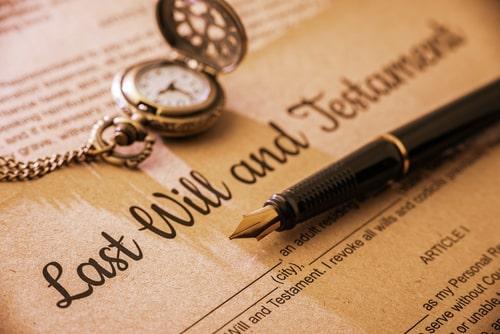What Is Undue Influence in Illinois? Part II
 In our last post, we introduced and discussed the concept of undue influence in creating a will. It can be difficult to prove undue influence – even the Supreme Court of the United States has said that what constitutes undue influence depends on the individual circumstances of each case.
In our last post, we introduced and discussed the concept of undue influence in creating a will. It can be difficult to prove undue influence – even the Supreme Court of the United States has said that what constitutes undue influence depends on the individual circumstances of each case.
When someone believes their loved one may have been under undue influence when creating a will, one way to show the will is invalid is to prove that there was a formal legal relationship between the testator and the other party, called a fiduciary duty.
This can be a little confusing, so we will explore further.
What is a fiduciary duty?
Simply put, when someone has a fiduciary duty to someone else, the person with the duty (the “fiduciary”) is legally required to behave in a manner that will benefit the other person (the “beneficiary”). Usually, this means the fiduciary must help the beneficiary financially.
One common example of fiduciary duty is the relationship between an attorney and a client, or an executive acting for stockholders. Another example is that of an employee who signs a contract promising not to share trade secrets or use company equipment for private purposes.
In the case of writing a will, the beneficiary is the person for whom the will is created, and the fiduciary is the person helping to create the will. When there is a fiduciary duty, undue influence is assumed to take place.
How is a fiduciary duty proven during the creation of a will?
A party wishing to claim undue influence based on a fiduciary duty must prove the following:
- The fiduciary participated in the creation of the will.
- That there was a fiduciary duty between the testator and the fiduciary, who was a “substantial beneficiary” of the will or trust.
- That the fiduciary was in a position where they could dominate and/or control the testator.
- That the testator trusted in the fiduciary.
If these four elements can be proved as having existed at the creation of the will, the court will presume that there was a fiduciary duty and, therefore, that undue influence occurred. The fiduciary must then prove that there was no undue influence in order for the will to be valid.
The degree to which a fiduciary must prove undue influence did not occur depends on whether that fiduciary duty was an explicit legal relationship (such as an attorney-client relationship) or whether it arose due to the nature of the case (such as a second wife helping a husband write his will). Factors such as the relationship between the fiduciary and the beneficiary will be taken into account, as well as any disparities in age, health, or mental condition.
Consult a Lombard Estate Planning Attorney
Undue influence is a complicated area of law. A skilled attorney can help you navigate the nuances of contesting a will, and can make a tremendous difference in the success of your case. Contact A. Traub & Associates today at 630-426-0196 and get the help of an experienced DuPage County probate attorney.
Sources:
https://www.casemine.com/judgement/us/5914be7fadd7b049347a8954
https://www.dcba.org/mpage/vol100498art5












